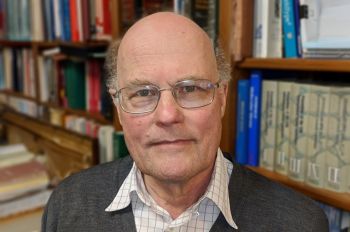Illinois Tech Awarded Grant for Next-Generation Electric Aviation Technology
CHICAGO—March 22, 2021—The U.S. Department of Energy has awarded Illinois Institute of Technology (Illinois Tech) a grant to develop critical technologies to help usher in a new era in electric aviation.
The $779,374 grant was awarded to Illinois Tech's Grainger Professor of Electrical and Computer Engineering John Shen to create the first-ever momentary circuit interrupter that can be used in turboelectric aircraft to help keep planes flying safely with megawatts of power coming out of their engines.
“Jet technology hasn’t changed much in the last 70 years,” said Shen. “But turboelectric aircraft, being propelled by many electric fans distributed across the body of the aircraft instead of just at the wings, represents a fundamental and exciting shift in air travel as we know it, with the potential to reduce air travel emissions by up to 90 percent — and this technology will be a critical step to make that a reality.”
Turboelectric aircraft will most likely replace conventional passenger planes, and with that, cut down nearly 200 million metric tons of greenhouse gas emissions from the United States alone and potentially avoid thousands of premature deaths linked to air and aviation pollution. Within the next 20 years, each turboelectric plane will be powered by up to 50 megawatts of electricity, enough to power a small city. Ensuring these planes continue to function safely while in the air will require a completely new kind of circuit protection technology.
Illinois Tech received this competitive award alongside General Electric (GE) Research, Virginia Tech, University of Tennessee, Advanced Conductor Technologies, and Hyper Tech Research as a part of ARPA-E’s Topics Informing New Program Areas - Connecting Aviation By Lighter Electric Systems (CABLES) initiative, for the development of technologies for medium-voltage power instruments, such as distribution cables, connectors, and circuit breakers for electric aviation applications.
“Supporting innovative research like this at Illinois Tech is the smartest investment we can make for our health, our future, and our economy,” said U.S. Senate Majority Whip Dick Durbin (D-IL), “I’m particularly proud of the transformational work to address the existential threat of climate change being done right here on the South Side of Chicago. Illinois is a national hub for air travel, and with innovations like these, we can be the national hub for green air travel.”
Air travel remains a growing contributor to U.S. greenhouse gas emissions as part of the largest primary source of emissions: transportation. In response, in 2020, ARPA-E launched two focused programs to enable the mitigation of greenhouse gas emissions through the adoption of electric aviation technologies. This research complements these programs and their goal of developing electric aviation solutions by addressing power distribution.
The Illinois Tech proprietary superconducting momentary circuit interrupters (SMCI) aim to provide fault protection with ultralow power loss (less than one watt), ultrafast response (less than a ten millionth of a second), and high power density for future turboelectric aircraft power systems.
Keeping a turboelectric planes flying safely with enough electricity to power a small city on board demands a new, heavy-duty circuit breaker, or fault protection.
“With that much electricity flowing through turboelectric aircraft, it’s crucial to avoid the conduction loss of solid-state circuit breakers that causes excessive heat and it is vital that we improve on the response time of hybrid circuit breakers to prevent potential damage from the electrical fault,” said Shen. “Using high-temperature superconducting materials for fault protection in this way is a really exciting technological advancement beyond conventional circuit breakers.”
SMCI is not a circuit breaker, but can perform fault interruption and isolation functions working in concert with the mechanical switch. It offers near-zero conduction power loss, microsecond-time fault interruption, low overcurrent stress, galvanic isolation, and is light weight. Professor Shen, who has authored and co-authored more than 300 journal and conference publications and holds 18 issued U.S. patents, and his Illinois Tech team are working on a wide range of power semiconductor device core technologies with emphasis on energy efficiency applications including smart grids and electricity infrastructures, renewable energy grid integration, high-speed railway transportation, plug-in electric vehicles and charging stations, zero-energy buildings, and circuit protection techniques.




